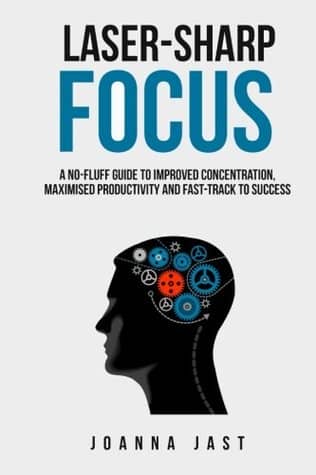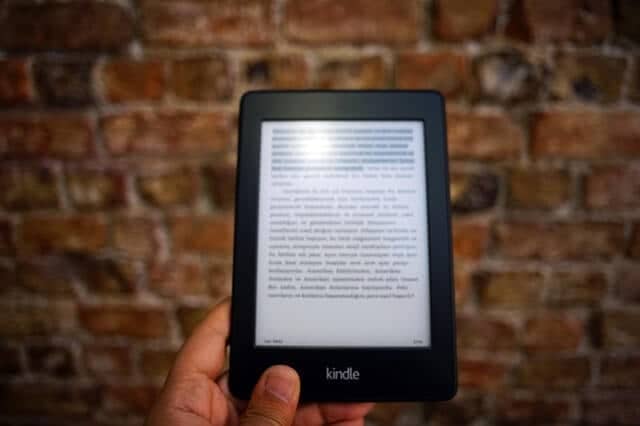Podcast: Download
Subscribe: Apple Podcasts | RSS
 Zoning out sucks, doesn’t it? You’re sitting there, wishing you can concentrate, wishing you knew how to improve focus … and yet … your mind is just dancing all over the darn place.
Zoning out sucks, doesn’t it? You’re sitting there, wishing you can concentrate, wishing you knew how to improve focus … and yet … your mind is just dancing all over the darn place.
Well, if you want to know how to improve focus and concentration so you can finally get those important things in your life done, the ultra-fast tips on this page will give you exactly what you need to focus quickly.
Make sure to read the entire post and download the audio for more tips. Enjoy this game-changing focus training! 🙂
Curious about what this post covers?
- Everything You Need To Know To Stay Focused
- The Fastest Way To Improve Your Focus
- How To Increase Focus With These 3 Quick Environmental Hacks
- How To Improve Focus By Concentrating On Your Body: 4 Simple Tips
- Want To Put These Instant Focus-Boosting Strategies To Work In Your Life?
Ready to boost your focus? Let’s get started.
Everything You Need To Know To Stay Focused
How would you like to skyrocket the effectiveness of your favorite memory techniques?
Or, if you’re having trouble getting started, how would you like to develop rock-solid focus that will allow you to learn, memorize and recall anything?
Here’s the deal:
Without good focus, no matter how much time you spend using mnemonics or walking through Memory Palaces, very little will stick.
Why?
Because focus is to memory and attention what a key is to a lock.
Yes, you can always force-open a lock. But it’s easier and smoother and faster with a key, don’t you think?
Most people get this point about focus wrong. They think it has to do with willpower. But willpower has been proven not to work:
Here’s Exactly How To Stay Focused
Most people get the whole focus improvement idea wrong. They continue to think that focus is a matter of motivation – and they keep digging into their ‘whys’, reading inspirational quotes and hiring accountability coaches.
Look:
These efforts all have their time and place, especially reading. But all of these activities take time, effort and most cost money. Worse, they only work until the next motivational low crashes down on your head.
And then …
You Have To Start Over Again!
Yes, motivation fluctuates and it’s not your fault – that’s just the way it is.
But no matter what your motivation for improving your focus is, making some simple changes in your environment and the way you work can dramatically improve your concentration and your ability to memorize information fast.
The Fastest Way To Improve Your Focus
Meditation is great. Don’t get me wrong. Its benefits are multiple and well proven. It helps improve concentration, mental and physical health. Even better, meditation keeps you young and happy.
There is a downside to meditation though. It takes time to see the benefits. Plus, you need to commit to at least 4, 15-minute sessions per week. Well worth it, but not instantaneous.
You have more pressing questions:
What about that neuroanatomy revision for the exam tomorrow? Or the German phrases you need to memorize for your trip next week?
Meditation is great and you should continue practicing it if you’re already doing it, but for all those moments when you need a quick focus fix, here’s my trick:
How To Increase Focus With These
3 Quick Environmental Hacks
I admit, I don’t meditate – I’ve tried many times and abandoned my efforts.
Between my inner wriggler, uncomfortable back, tendency to fall asleep immediately when still and relaxed and a number of other effective strategies I use for my ‘mental powers’ – I’ve never been able to experience enough benefits of meditation to keep doing it.
Making changes to my environment, on the other hand, has been the quickest way to make an impact and offered the most bang for my buck.
What can you do with your environment to stay focused?
1. Create A Comfortable Workspace
First, to focus on work better, improve the ergonomics of where you want to boost your concentration. Make sure your desk and chair are at a comfortable height so you don’t strain your back. Often a simple thing such as a small cushion or a rolled-up towel to support your lower back is enough to fend off that back soreness interrupting your workflow.
Adjust the position of your computer and any other work tools you use. The optimal set-up for your desk space includes your monitor being at arm’s lengths away from your eyes and your wrists and hands on the keyboard straight at or below elbow level.
These little tweaks will help your body stay comfortable at work. Check out this Mayo Clinic article for more info on office ergonomics.
2. Eliminate Noise
Noise is another vital element of work environment many people don’t appreciate the effects of. Noise is not only a powerful distractor, but also forces your brain to do additional work by ignoring it. If you’ve ever worked in a noisy environment, you know how tiring this can be.
Eliminating or minimizing noise in your environment can reap immediate benefits for your focus and memory.
You don’t need complete silence, but at least try to minimize/eliminate conversations and anything that resembles conversations around you. These are real focus killers, because our brain is wired to tune in to conversations (in case there are some survival benefits to it).
Conversations and fragments of conversations come from many sources, For example:
- Colleagues
- Friends
- Family
- Passers-by
- Radio
Whether these tidbits of gossip and other verbal diarrhea float in through the window, an open door or thin walls, they will keep your brain busy trying to make sense of the fragments. As a result, your focus and memory powers will be affected.
Music needs special attention, because music evokes emotions, and emotions, positive or negative, affects the learning process. That’s why many people find music helpful in the learning process.
If you have found music that helps you memorize better, good for you. If you’re still looking for the right music, be mindful that evoking emotionally powerful memories can hurt your learning process, too. And if you like to listen to music with lyrics – just mind that conversation effect: don’t add any more work to what your brain is already doing by trying to tune into the lyrics and understand what they mean.
If you don’t have your own office/study room, don’t despair. There are a number of simple devices that can help. The easiest thing is to get a pair of noise cancelling headphones or earmuffs.
White noise may also provide a solution, albeit not a permanent one, as white noise can be tiring in the long run, too. I’m writing this post in our dining room (I don’t have an office at home) while my husband is watching Hunger Games in the living room next door. I’m generally sensitive to noise and get distracted and tried by it, but the fact that the dehumidifier is on and it’s loud really saves the day for me.
Before I finish talking about your environment, let me mention one more powerful trick to improve your focus immediately.
3. Manage Technology So That It Doesn’t Manage You
Turn technology off.
Yes, technology can be helpful when it comes to learning and work productivity, but if you don’t manage technology, it will manage you.
I’m not telling you to go ‘off the grid’ completely, but you can boost your concentration and ability to memorize by simply turning off all the notifications. Or, as Anthony suggests in Mandarin Chinese Mnemonics And Morning Memory Secrets, don’t even turn any computers on until you’ve got your most important memory goals completed.
How To Improve Focus By Concentrating On Your Body: 4 Simple Tips
Now that I’ve told you about fixing your environment, it’s time to talk about fixing your brain, right?
Nope.
I’m sure you’ve heard about all sorts of exercise to improve your brain powers.
But did you know that one of the best strategies for a sharp mind has nothing to do with those ‘mental workouts’?
I can’t emphasize this enough:
Two years ago, I was struggling with focus. My memory was shockingly bad and I was constantly fighting tiredness.
At that time I was doing research for one of my online courses and discovered a book by John Medina called Brain Rules. This is an excellent book, well written and full of useful, evidence-based stuff.
1. Get Good Sleep
Among many other strategies, Medina emphasises the immense mental benefits of sleep.
It’s well known that sleep improves our memory, and it bears repeating that sleep deprivation affects also your ability to concentrate.
Worse, if you’re not sleeping well, you’re eroding your ability to think, problem-solve and succeed at many other tasks. One sleepless night impairs your performance as much as having 0.1% alcohol in your blood (which is above legal driving limits even in the most liberal countries).

So if you want your mind to be sharp, your wit quick and your thinking top-notch, don’t skimp on your zzzz …
And if you happened to sleep badly last night and you can feel the effects of it – take a power nap. Power naps are 15-20 minutes long naps aimed at ‘resetting your brain’.
You may need to find your own sweet spot, but generally it is recommended not to exceed 30 minutes, so you don’t enter the deep sleep phase as this can make you feel groggy and sluggish. Set the alarm, sleep in a quiet, dark room or use an eye mask, make sure you warm and comfortable.
2. Exercise
On top of keeping you physically well and happy, exercise can also improve your mental performance. And it happens in two ways:
- By increasing the flow of oxygen into your brain.
- By boosting the creation, survival and resistance of your brain cells.
In a nutshell, exercise is the cheapest and easiest mental enhancer available.
And I experienced it myself. Those 2 years ago, having read about the benefits of exercise, I decided to get back into regular running.
And once I started running, my concentration, memory and thinking powers improved quickly. I was able to finish writing and recording not only the course, but also my recent best-selling book, Laser-Sharp Focus. A No-Fluff Guide to Improved Concentration, Maximised Productivity and Fast-Track to Success.
The takeaway:
If you’re still hesitating if you should go for a walk or work out tonight – just get on with it. Do it for the health and happiness of your precious mind and memory.
3. Destroy Procrastination
Procrastination is a massive killer of productivity. From bills unpaid on time, to Christmas gifts bought at the last minute, to time spent on playing games, or watching stupid programs/videos instead of preparing for tomorrow’s exam or that crucial presentation.
We all procrastinate. But do you know, what your favorite procrastination monster is?
I don’t mean what you do when you procrastinate, but why you procrastinate in the first place?
If you don’t, I recommend next time you procrastinate, explore the underlying issue.
Once you understand that, you can apply a targeted solution..
I’m going to make it easy for you. Here are the 7 most common reasons why people procrastinate:
- Fear of failure or success
- Perfectionism (which is usually p.1 in disguise)
- Feeling overwhelmed by the task
- Lack of /insufficient interest or motivation to do the task
- Skill or knowledge gap
- Disorganisation
- Internal (thoughts or emotional state)
Explore your underlying reasons for procrastination by asking yourself why you’re doing what you’re doing instead of working on what you should be doing. Keep asking why (usually 5 times is enough) until you get to the bottom of the problem – or until you reach one of the reasons listed above.
Why should you investigate the roots of your procrastination?
Because, the better you understand your problem, the more targeted solution you can put in place to address it.
And this is the point many people miss:
Jumping from one ineffective/partially effective anti-procrastination strategy to another. Don’t waste your time and energy on strategies that are unlikely to address your problem. Diagnose your problem and apply the right strategy.
4. Discover Your Inner Drive
Remember what I said at the beginning? Motivation is flimsy. Get over it and get on with your life.
Now, you might be thinking:
These tricks sound clever. But surely, we need something more substantial to carry us through all those days, weeks and months filled with stuff to do? If not motivation, what should I rely on then?
Well, let me get this motivation bit straight.
If you want to get somewhere where you want to get – not to a random anywhere, you need motivation.
But since you’re listening to Anthony’s podcast, you already have motivation. Motivation to improve your memory, your mental performance and probably – also your life.
Because these are all self-improvement goals. And that’s awesome.
You know what you need, you’ve done some research to identify what may help, you’re listening to Anthony’s podcast, reading, digesting it and maybe even implementing.
That’s a lot, actually.
So in my books, this means you’re motivated.
And even if you haven’t started implementing any of the advice Anthony and his guests have shared with you – it still doesn’t mean you need to ‘motivate yourself’ to get there.
No.
We’re all driven by some type of motivation, whether extrinsic, like money, praise or avoidance of punishment, or intrinsic – autonomy, mastery or purpose.
Most of us have a mix of things that make us tick, but often there is a dominant one – one motivational driver that lights your fire.
I suggest you find out what it is. Because, honestly, if you know what lights your fire, you’ll be always able to put the right fuel into your motivational tank and get where you want to get without having to ‘motivate yourself’ again and again.
I recommend you read Daniel Pink’s great book: Drive. The Surprising Truth about What Motivates Us. If nothing else, watch his TEDTalk, The Puzzle Of Motivation:
It’s awesome to always feel motivated to do what you need to do, but sooner or later you’ll end up feeling like you’d rather play your favorite game, watch silly cat videos, or clear your desk.
The best way to prevent it from happening is to create a system that runs on autopilot.
This is the way I get my writing done – my book(s), guest posts, emails, etc. Even this podcast was written using my system – a system that makes me do what I need to do even when I don’t feel like it.
Systems are reliable, repeatable and run on autopilot.
They require some time and effort investment upfront, but once set up, they run automatically, without fuss and extra cost.
I can talk for hours about building productivity and habit systems, but let me give you a few juicy tips.
Want To Put These Instant Focus-Boosting
Strategies To Work In Your Life?
You now know why you want your focus to be laser-sharp. This insight will fast-track your journey to your memory goals and help you become a powerful learner. Whatever the dreams you’re pursuing, laser-sharp focus will make it easier and faster to achieve.
It may seem like focus is a skill that takes a long time to develop and a lot of effort to perfect – and yes, traditional approaches, like meditation and motivational strategies indeed take time and practice before you can reap the rewards.
But with a bunch of smart tricks that truly improve two levels of intelligence, you can quickly turn your overwhelmed by distractions and defeated by procrastinations mind into a powerful machine that you can turn on with a flick of a button.
Related Posts
- How to Meditate for Concentration and Focus: A Simple Guide
In case you've ever doubted the awesome power of meditation for concentration, just wait until…
- How to Memorize Something Fast: 5 Simple And PROVEN Memory Techniques
Wondering how to memorize things fast? Read this post for 5 solid steps you can…
- How to Improve Memory for Studying (7 Powerful Tips)
Want to know how to improve your memory for studying? From the Memory Palace technique…











26 Responses
Great resource! Thank you so much, I have to listen again and again. Actually this podcast is very useful for me to learn about focus and English also.
Great to have you here, Kani.
Yes, many English learners like the Magnetic Memory Method Podcast because it helps give them the tools for learning the language as they listen.
Thanks for stopping by and taking the time to comment today! 🙂
Great stuff, Joanna and Anthony! I recently started digging into the reasons I sometimes have less than productive days. One big thing was not having a plan.
Planning too far ahead doesn’t work for me, but it helps if I set up my day the night before.
Thanks for stopping by to comment, Leanne!
I agree that having a plan but not planning too far ahead needs balance.
For myself, I’m using The Freedom Journal for a huge project right now and am 37 days in, with 63 to go. Having the daily and nightly journaling about the project has really helped. So far I’ve missed only one day of content production, but I still spent time thinking about it. I’m really pleased with how things have gone and it’s helped with exactly what you said about not planning too far ahead. I know what’s coming, but I don’t have to know right now exactly what I’m doing.
Also, I normally listen to music when writing and editing. But after Joanna’s post, I’ve been experimenting with working in silence. It’s difficult with construction going on in my neighborhood at the moment, but when it’s not on, I’m enjoying the benefits of quiet.
Thanks again and talk soon! 🙂
Anthony, I’m pleased to hear you experimenting with silence as I know you are a great fan of working with your favourite music on 🙂
I find the constant noise, like construction works, music the worst. Sometimes, unfortunately, there is little we can do about it. I recommend noise cancelling earmuffs, but often just closing doors or using earplugs is enough to bring the noise level down, below that ‘irritation threshold’ may be enough (as long as it doesn’t last too long).
What’s the Freedom Journal?
Yes, I have professional, custom-fitted earplugs for sleeping … I should perhaps wear them when working. It will be tomorrow’s experiment.
The Freedom Journal is really great. I bought it for my memory research and experiments and had it for at least a month before I figured out how I would use it. So far, everything has been incredible. I am just about to cross a huge milestone on the major project I mentioned and I’m very excited about it. I’m going to do a full podcast episode on how I’ve used it and its role as a mnemonic device once the 100 days are through. Stay tuned! 🙂
Hi Leanne, I’m pleased you found the post helpful.
Setting up your day the night before is an excellent strategy – you not only making sure you focus (!) on the right things and get stuff done, but also start your day with intent, without losing the best hours of your day, when your brain and body are fresh on planning and ‘faffing around’.
I’m a short distance runner, so I find it hard to plan to far ahead, but it’s important to have a long term plan and keep that somewhere visible, so we don;t lose the all the Big Goals from sight.
Great information. Very useful. I’ve been meditating for 30 years. It is just as important as sleep in my life. After reading your material, I think your focusing is your form of meditation. It helps you stay centered and in the now, which is one of the goals of meditation. Joggers may not be sitting and reciting “Om” but their action is really meditation on the go – all beneficial.
Thanks for sharing your passion.
Leonard
Thanks for stopping by and commenting, Leonard. Yes, I think that “meditation” is sometimes too tightly drawn to certain activities that we’ve stereotypically linked to that word. I remember hearing Flea, the bassist from Red Hot Chili Peppers once saying that he sees no fundamental difference in the benefits he receives from meditating and playing bass. For him, they are two paths to the same place. 🙂
Thanks Leonard.
I like the way you approach the concept of meditation as an activity that helps us stay centred.
I think that the bottom line is – whatever works for you, whatever does the job.
Great article! Got tips that when reading a started doing just to keep track and don’t forget. A strange thing that I noticed it’s your meditation that you just forget or can’t get done for more than a week, you can apply the same strategies in order to meditate.
Whatever, I work on the internet and will be a great tips I’m beginning to start doing, I used a app in google chrome called stay focused, and also turned my phone off while working let me see if I can get to that for at least a couple days, I think the main problem that I can’t solve is silence and to keep way from Facebook because it’s a tool for work but I always stay there just spending some time.
Thanks for stopping by and commenting, Mario!
Yes, all of these strategies help in getting ourselves to meditate regularly. And that’s important because meditation is so important for having a healthy brain that can focus and remember. It’s a perfect circle that’s you improve all areas at the same time.
I think a lot of us face the problem that Facebook is part of our work. “Kill Newsfeed” is a great app you can download to remove some of the more prevalent distractions, however. It’s helped me a great deal actually use Facebook. Otherwise … No way! 😉
Hello Mario
Thank you for stopping by and commenting!
Just as Anthony said, these strategies can be applied to any activity that requires focus.
If you can’t create a completely silent environment, try to get as close to it as possible, and definitely minimise those sounds that are distracting for you.
I agree with Anthony on ‘weeding your newsfeed’ on FB. Over the past year, I’ve realised that I, too, need FB for work. So I’ve trimmed my newsfeed to minimise the amount of updates I get, so even if/when I do have a look at my FB (during breaks), what I can see is not enough to get me engaged for too long.
Glad that you’re weeding and trimming too, Joanna. I wonder when FB will come out with an enterprise edition for educators who just need to check in with their groups. In the future, some of us will be paid for being free from distraction (something I discussed not so long ago with Brad Zupp in a roundabout way).
Thanks for the guidance in a very systematic and detailed manner, that’s not at all boring.
May God help us to implement your advice for mindful living.
Thanks for the kind words, Aamna.
With practice and dedication, anyone can put these techniques to great use. Dive in and enjoy the process.
Thanks. This helped me to focus and concentrate on my job!
That’s great, Carla. I appreciate you letting us know.
Nice post. I agree with your tips and like your other post suggest that brain supplements are not a reliable way to improve concentration. It’s wonderful that you’re helping people use these techniques properly for establishing effective focus that lasts.
Glad you could check it out, Dinesh, and the other post.
Yes, the best way to improve in these areas is to use real brain exercise and other memory strategies. There are no magic bullets in the form of pills.
Hi Anthony, wow, there’s a lot of info out there to navigate! Something has stopped me in my tracks here at MMM BUT I need to ask: I’m 76 years old, sharp (PhD) but terrified my short term memory is clearly slipping! On administering a ‘mini mental’ my neurologist said “You haven’t got dementia but you need to ‘pay more attention'”. OK, so would MMM help me?? I note the Harvard Medical School state “stay away from courses that center on computer or concentration games … select a course that focuses on practical ways to manage everyday challenges”. It would be good to hear from you Anthony, thanks for replying.Cheers, Carol
PS It seems you are offering a ‘free’ course – this sounds a bit strange? I live in Hobart, Tasmania, Oz. What supports are there?
Thanks for this, Carol, and always great to hear from a fellow PhD.
Yes, paying more attention is a key step. It really will start to improve your memory because if you aren’t paying attention, it’s impossible to remember information that hasn’t been noticed.
Memory training will help with this because in order to use the techniques, you will start paying attention to both the information and how your mind works at the same time. This develops procedural memory processes that with enough practice become something like an autopilot habit.
I haven’t read this advice from Harvard Medical School, but this is the same thing I’ve been telling people for many years. Those games can develop a small amount of context-focused motor skill improvement… perhaps. But they have nothing to do with memory improvement for every day tasks.
Generally a mix of language learning and something like juggling or playing an instrument will be far better. If you can add in practice with mnemonics on a daily or near-daily basis, all the better.
I’m not sure that offering this free course is strange. It’s very common on the the Internet and I’m confident you will find it valuable. It has four free videos and three worksheet PDF booklets.
What would be strange is not completing the free course in full, but fortunately, we have many people who wind up doing so and they enjoy the outcomes so much, they wind up supporting it. That enables me to continue my research and teaching.
As for support in Hobart, I’m not sure if there are any memory training communities there, but I’ll ask a friend who recently moved there from here in Brisbane where I am now.
In memory training, in person or group support can help, but at the end of the day, these techniques involve personal study and quiet practice. If you wind up involved more in the MMM community after completing the free course, there will be opportunities to join group training sessions. But the emphasis there is on individuals sharing their individual practice and that keeps each of us pumped up for what we do while learning on our own.
Does this response help answer your questions?
Hi sir, how to stop ourselves from being so distracted? Like for me when I need to start working I immediately reach for my phone and start doing nothing. Thank you.
How many of the steps covered on the post you read today have you started putting into action?
Change starts when you start choosing to take action based on the freely shared knowledge out there.
A simple choice is to put the phone away and create your Memory Palaces with a pencil and paper and start memorizing information from a physical book.
Do distracting device = no distracting device.
Does this simple equation help you out?
How to focus on important things.
Great question.
Part of the puzzle is to have a goal that has been tested.
I often use a Want vs. Need analysis. If I don’t need to be studying it, I put it in the “Not Now Folder.”
There’s also a training you can find by searching this blog for my free training on creating a “Magnetic Vision Statement.” That goes much deeper on the topic.
Finally, you can look on this blog for my article on identifying the main points in different articles and books. That will help you find the important information in books and save time on looking at insignificant information.